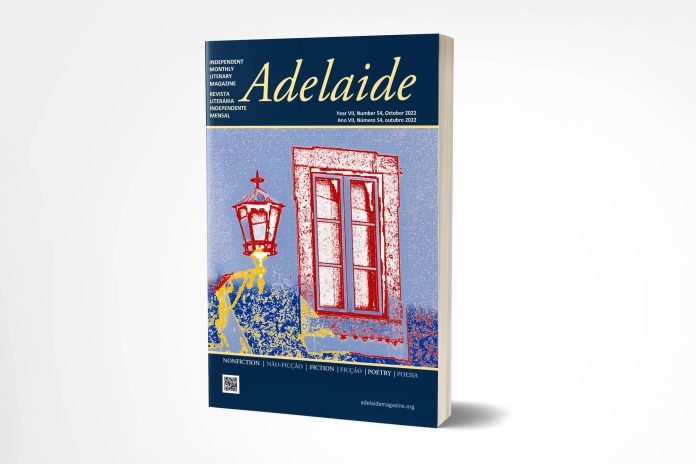Whether or not Ram was there
I don’t know. Whether or not
Ram would come one day,
that also I don’t know. But then,
the only thing I know is that
there’s one Ram Lal
there’s one Ram Prasad
there’s one Ram Kumar
and there’s one
Ram Narayan Ghasi.
The one who’s a servant
at someone’s house
the one who’s pulling a rickshaw
from daybreak to the sundown
the one who’s
begging from door to door
and the one who’s head-carrying
human excreta daily
from the Notified Area Council.
I’m saying the truth, whether
or not Ram was, I don’t know.
Ram is considered to be one of the 33 crore gods of Hinduism. People of Hinduism believe that Ram was a great king and he’d come again to rule. In this poem, the poet rules out the existence of Ram and depicts the most inhuman practice—casteism of Hinduism that is prevalent in India for around 3500 years. The poem portrays its blood-chilling and despicable impact on Dalits, Adivasis and Other Backward Castes which has become a doom for them.
HUNGER
Right behind the godown
there’s Manjula’s shanty
and the godown is full of rice.
Rats are living on it
soil is living on it
rice, rice, rice
scattered everywhere
unevenly in the entire godown.
Manjula’s husband has
gone out to work
he’s not yet back, it’s
already 4 in the evening.
Munni, the little baby
says crying, I am hungry,
get me food, get me food.
Yet, poor Manjula
can’t light her hearth to cook.
REVOLT
I slashed the tongue
the two eyes started revolting.
I scooped the two eyes out
the two hands started revolting.
I cut off the two hands
the two legs started revolting.
Then I disfigured the two legs
the head with no eyes
and tongue started revolting.
At last, chopping up the
head and body to fragments
I buried them under a deep pit.
Then I saw after a few days
from the pit there thronged
thousands and thousands
of insects and they started
revolting with great ruckus.
I got it and spoke to myself
who can stop someone
who wants to revolt?
THE WILD
The wild will no longer be wild
but had they been wild forever,
it’d have been good. The wild will
gradually understand the difference
between the vowel and the consonant
they’ll also learn
how to sum up the arithmetic
they’ll study modern literature
science, geography and will understand
where the profit and loss is
along with the reason
why the sun rises and goes down.
the wild will no longer be wild—-painful,
that’s my sorrow—–
like someone’s skeletal body
an empty stomach and
a tear that doesn’t ooze
and the unexploded whoop of the heart.
Coming out of the jungle, the wild
will understand the civility
and as time goes by, in a few decades
they’ll be civilised and
regret for their nakedness
they’ll be dressed in urban attire—–
jeans, blazer, suit, pants, bras and panties
they’ll tune to the latest cosmetics
instead of clay and turmeric
doing away with kendu-leaves bidi,
they’ll switch over to smack and heroin.
And eventually, the wild will be civilised
leaving the deserted jungle they’ll fly
by the Boeing jet faster than the sound
facing towards the sky, they’ll go in search
of a new planet like the earth to recycle
another jungle to be wild at any cost.
SCENE
Yesterday again
someone was laying dead.
Truth was speechless
lie was smiling
religion was godless
violence was absconding
and fear had engulfed.
Kindness was dribbling
here and there
and God was absent!
Time was ticking clearly
and the police officer
was interrogating the crowd
tell me the truth
if anyone witnessed anything.
Debendra Lal is a lawyer by profession. He writes poetry in Odia. His work appears in numerous Odia journals and in Indian Literature, the journal of Kendra Sahitya Akademi, New Delhi. He’s two books of poetry, Andhakshara and Birodhavasa. He grew up in Odisha, India.
Pitambar Naik is an advertising professional. He reads for Mud Season Review. His work appears or is forthcoming in Notre Dame Review, The Other Side of Hope, Packingtown Review, Ghost City Review, Another Chicago Magazine, Rigorous, New Contrast, Glass: A Journal of Poetry, Outlook, The Indian Quarterly and The World That Belongs To Us HarperCollins India and elsewhere. He’s a book of poetry, The Anatomy of Solitude (Hawakal). He grew up in Odisha and lives in Hyderabad, India.



















